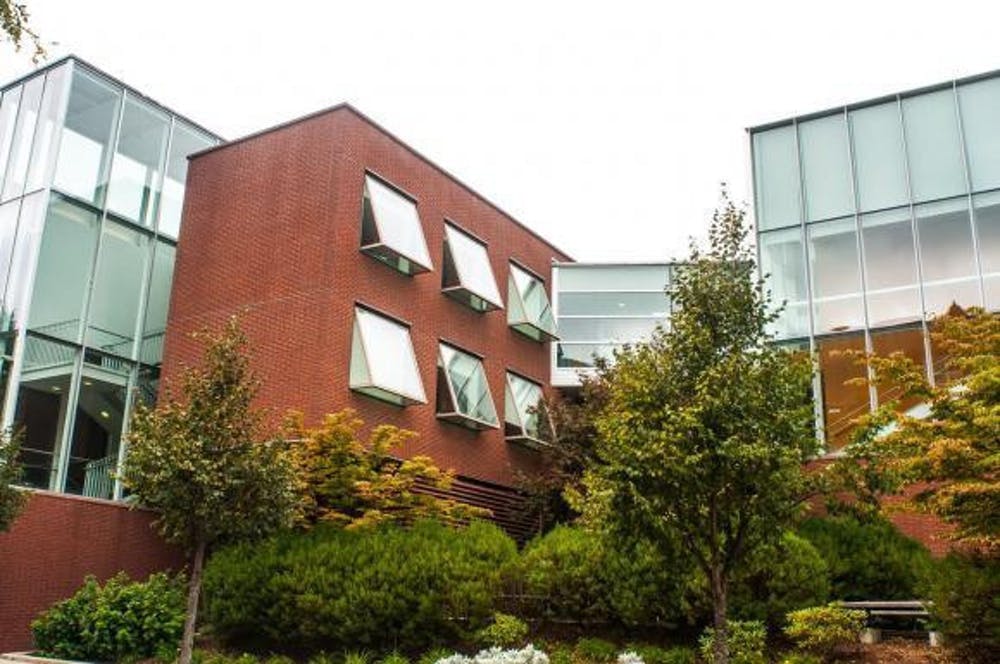Swarnim Waglé, chief economic advisor at the United Nations Development Programme Regional Bureau for Asia and the Pacific, presented the challenges Nepal faces in developing its economy and strengthening its democracy as part of a lecture Monday.
Waglé served on the Nepali government’s National Planning Commission between 2014 and 2018, during which he guided national development and policy. Previously, he worked at the World Bank in Washington, D.C., as well as various offices at the United Nations Development Programme.
Waglé began the event, which was hosted by the Center for Contemporary South Asia, by giving a brief history of Nepal. He explained that Nepal is the oldest nation-state in South Asia with a history of semi-colonization by Britain. Nepal provided cheap military labor to expand Britain’s empire throughout the world but was never victim to explicit extractive colonization, he said.
According to Waglé, Nepal’s landlocked status helped conserve its independence, but “also imposed a lot of costs in terms of trading costs, engagement with the rest of the world and the flow of people, ideas and capital goods.”
He went on to say that Nepal has seen “complete and utter stagnation in economic growth” since its inception over 200 years ago. A large portion of Nepal’s population live abroad because of the sparse opportunities within the country, he said. Nepal is currently the second-poorest nation in Asia, second only to Afghanistan.
Waglé believes Nepal has seen recent changes in its economic foundation and holds a unique opportunity to modernize within the next few decades. For example, he said that while the portion of GDP based in agriculture shrunk from 50% in 1990 to 24% in 2020, many former agricultural workers are entering service sector jobs that do not offer the same long-term benefits to Nepal’s economy as would an expanded technology or manufacturing industry.
Waglé went on to argue that the country has uniquely strong democratic institutions despite its economic output. From 1769 until 1990, Nepal was led by an absolute monarch or absolute prime minister, apart from a brief democratic experiment in 1960. Three major organized movements since the 20th century, Waglé said, have helped Nepal transition into an “open, vibrant, democratic country” with a formalized constitution.
Still, he argued that corruption and ineptitude plague the Nepali government and keep it from reaching its full potential. He drew parallels to the leaders of a number of African countries whose officials emerge as revolutionary heroes but later begin to consolidate power through increasingly corrupt means within government systems that lack checks and balances such as strict term limits. Waglé also emphasized the high cost of running for office relative to the average wage, which presents another barrier for aspiring politicians to build and fund a campaign through honest means. Such corruption has led to collusion and anti-competitive behavior between the private sector and the government.
Waglé referred to the “enlightened” voter multiple times as a remedy to bad governance and slow growth. He presented a theory in which “bad” political candidates reinforce lower “enlightened” voter participation, while “good” political candidates reinforce higher “enlightened” voter participation.
“When the voter participation is not enlightened, we're not demanding. We're not asking for accountability. And this perpetuates itself,” he said. Simple reforms that come from good governance would accelerate economic growth, setting a standard for voters about what policy can achieve. With this model, Waglé argued Nepal was on the tipping point between two equilibriums — one in which Nepal is cemented in a state of corruption, and one in which Nepal’s democracy is self-reinforcing.
Waglé ended by presenting his fears and hopes for Nepal’s future. He mentioned that natural disasters, such as the major earthquake that devastated Nepal in 2015, can wipe out decades of development. Climate change exacerbates natural risks for Nepal, particularly because “elevation dependent warming” will amplify global warming within the Himalayan region.
But Waglé said his biggest concern is that the Nepali government will “not get (its) act together” soon enough to induce higher economic growth while the opportunity is still available.
Still, he added that digitization, green energy and other factors give him hope about Nepal’s future.
“I'm quite optimistic,” he said. The general convention of the Nepal Congress “is coming. And one hopes that there's a whole group of young leaders who are highly likely to assume some very important positions.”
Correction: A previous version of this article included a quote that stated that the "the Nepali workers’ general convention" is upcoming. In fact, the general convention of the Nepal Congress is upcoming. The Herald regrets the error.





